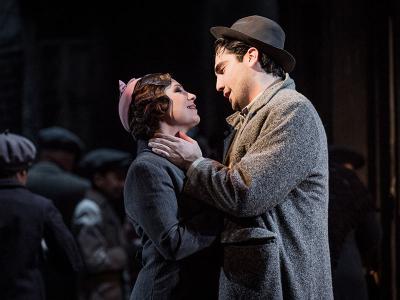Luisa Miller's David Junghoon Kim and Alex Joel in conversation
We sat down with Luisa Miller‘s Alexander Joel (Conductor), and David Junghoon Kim (Rodolfo) to discuss the opera, their roles in the production and more. Read on for an inside look into the exciting and dynamic new production.
Luisa Miller. Where do we begin? What’s the story?
DJK: It has some real similarities to Romeo and Juliet, but the details are a little different. My character, Rodolfo, has a little more tragedy than Romeo, I think! Rather than the anger being strictly between the two families, as in Romeo and Juliet, here I have anger towards Luisa. There is this misunderstanding, a miscommunication, between the two lovers.
AJ: It’s a little like La traviata too, in that sense. In traviata the father forces Violetta to leave Alfredo so that Alfredo’s sister can get married, and we have a similar father-daughter relationship here.
DJK: The music is similar too!
AJ: Yes, you can hear traviata and Trovatore. It’s interesting that the first act is very much in the style of early Verdi – maybe Donizetti, Bellini-style ideas – and in the second act we transition to a middle period. Then, by the end we’re moving towards Otello and Don Carlos. The scene in this piece when he poisons her is so reminiscent of Otello. The atmosphere is similar.
DJK: That’s so interesting for me as Rodolfo – there’s not one specific colour or conceptual idea all the way through…
AJ: It evolves!
DJK: It evolves musically and dramatically. Rodolfo is very complicated and is going mad; “kill me, kill her, kill father”, he’s being driven crazy! In the act one finale, it’s my own mad scene to the end, like in Lucia di Lammermoor.
AJ: It’s interesting, right at the end the harp plays – only 16 bars or so – and this part suddenly becomes like a big Don Carlos moment. David is incredible because the cabaletta is famously difficult, and he’s fighting during the hardest part! He’s singing and beating up some dancers. They’re assailing him and he’s beating them AND singing some high notes! It’s very, very impressive. Usually tenors are happy to just get through that part not moving at all, but he’s running around and beating people up.
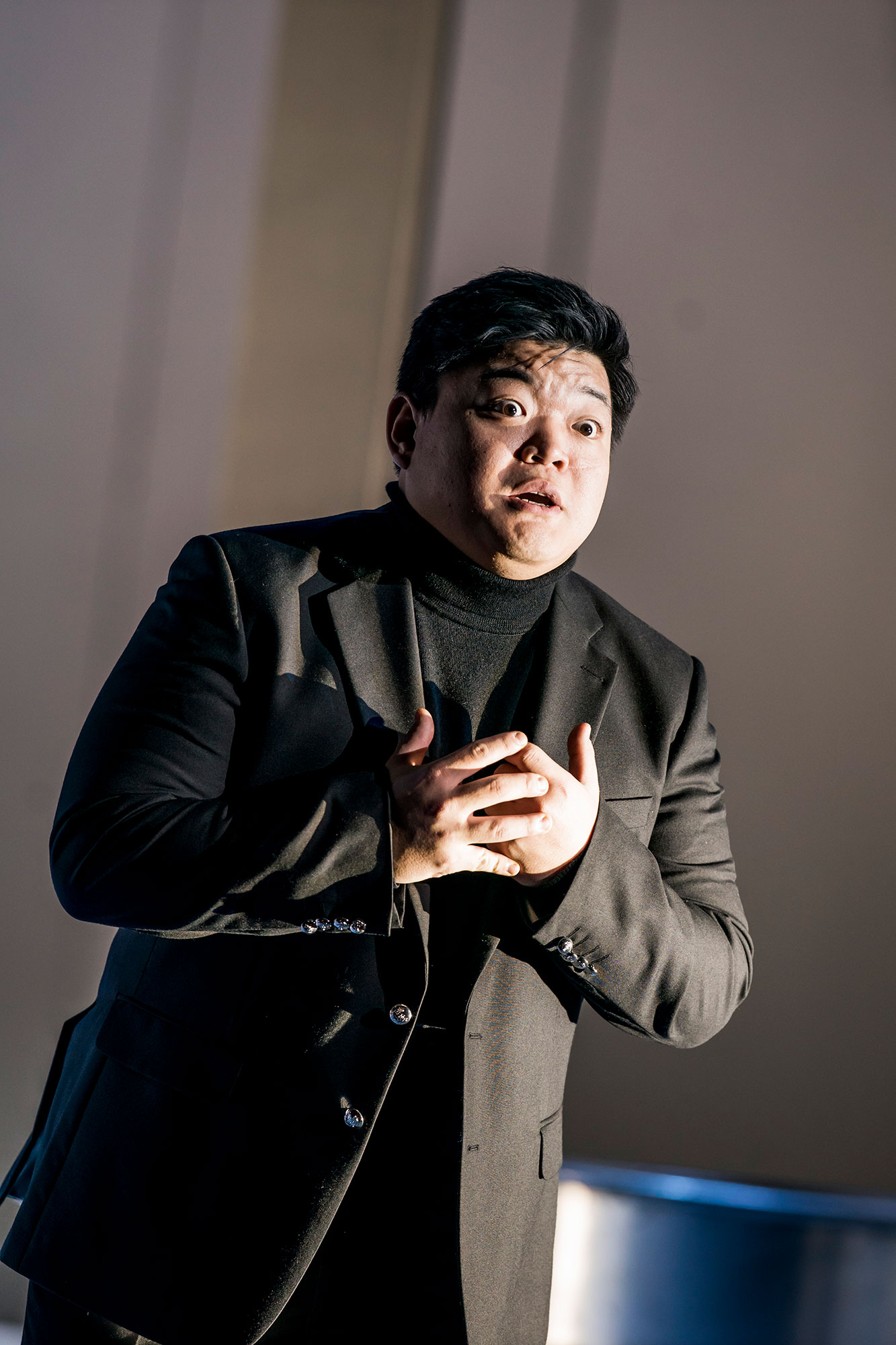
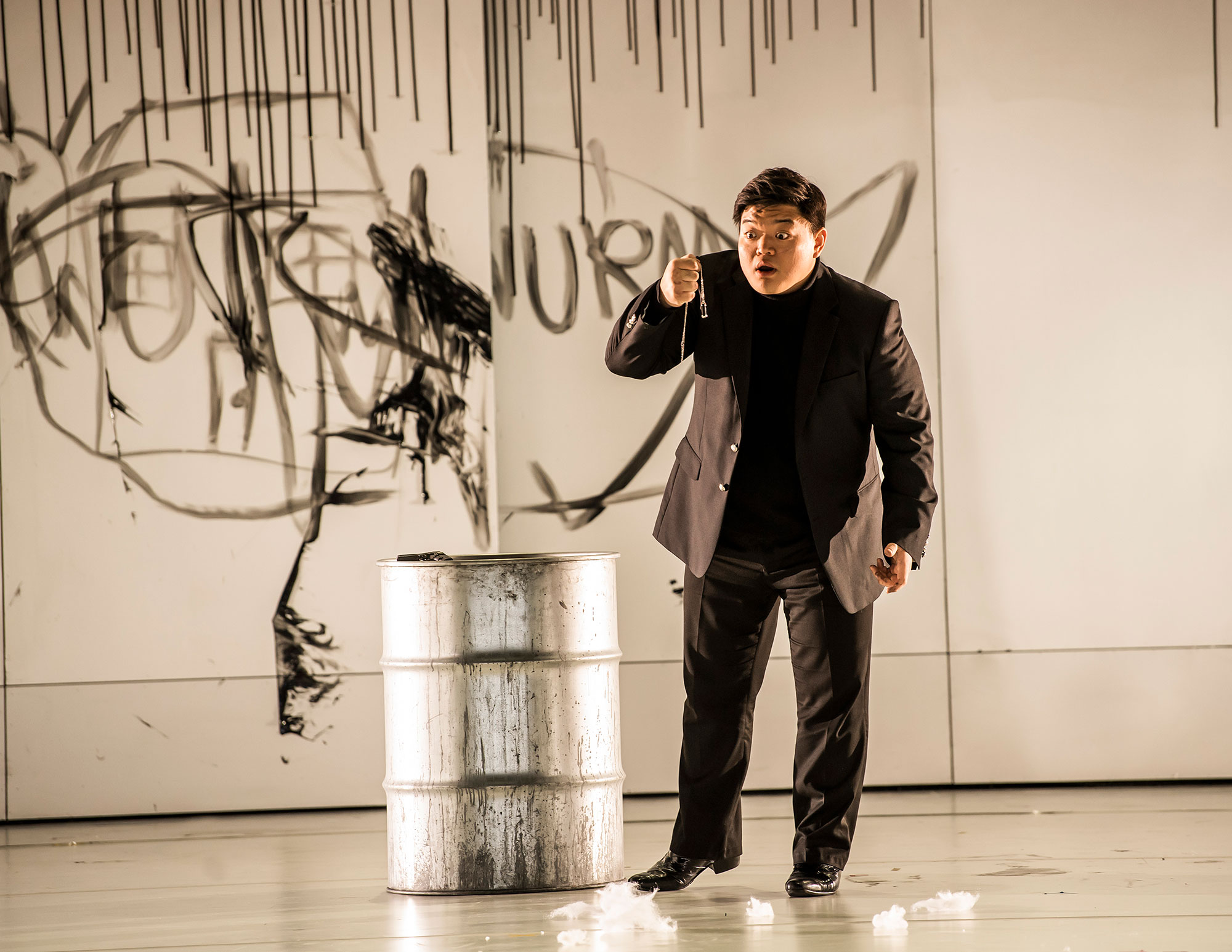
What has it been like working together? Of course, this is not the first time you’ve collaborated, but how has this project extended your working relationship?
AJ: It’s like we’re married, we’ve been together for six months! [laughs]
DJK: We’ve been together since August!
AJ: We did Rigoletto together at the end of November (with the Welsh National Opera), and then began work on this at the start of January, so back-to-back projects. I keep telling everyone how fantastic working with David is, he’s marvelous.
DJK: For me, and for all singers, it’s so important to work with conductors who not only make great music but who you can really collaborate with and be relaxed around. Working in an organic way is the most ideal way to work, and Alex knows exactly how to deal with us! When I learned it was Alex who would be working on Luisa Miller, I knew I had nothing to worry about. Except for the English… [laughs]
AJ: The thing with David is he’s always so ambitious; he’s so good already, but he also wants complete honesty and is okay with me suggesting things. He’s able to digest, adjust and adapt, which makes me very happy. You could say “don’t force here, don’t push, change this” and he always takes my advice. He’s very professional, and tries so hard to make things as perfect as possible. David is extremely conscientious.
How important is consciously building strong relationships with the singers/conductors you work with?
AJ: It’s the most important thing. If you work with a singer that doesn’t click into your musical idea, just as it would be if I didn’t click in with the singers’ musical idea, it’s very, very difficult. You can put the piece together more or less, but it misses the point.
DJK: I think it’s important to remember that singers are also instrumentalists, in a way, and they need a level of flexibility to really work within the conductor’s plan or the director’s concept.
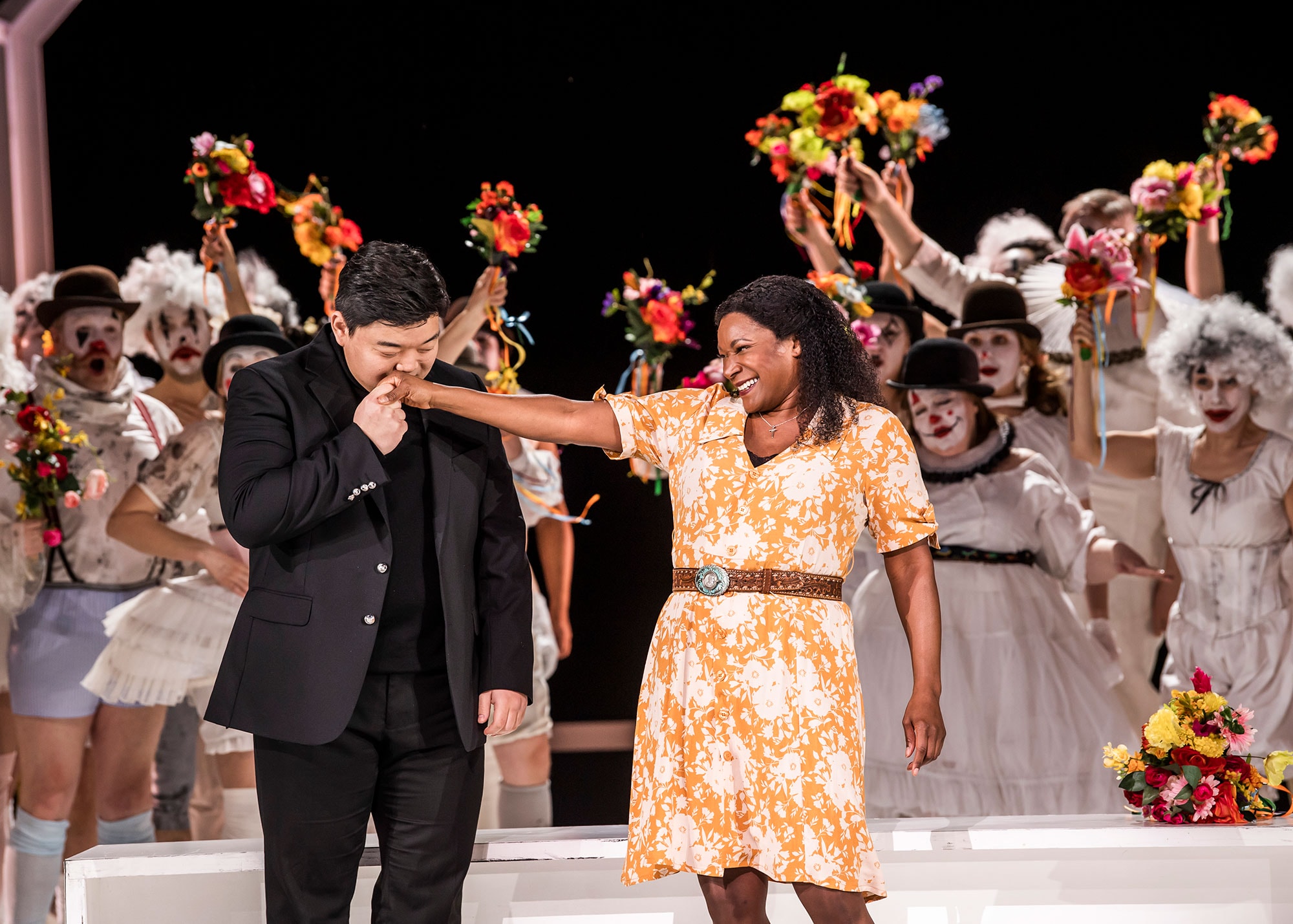
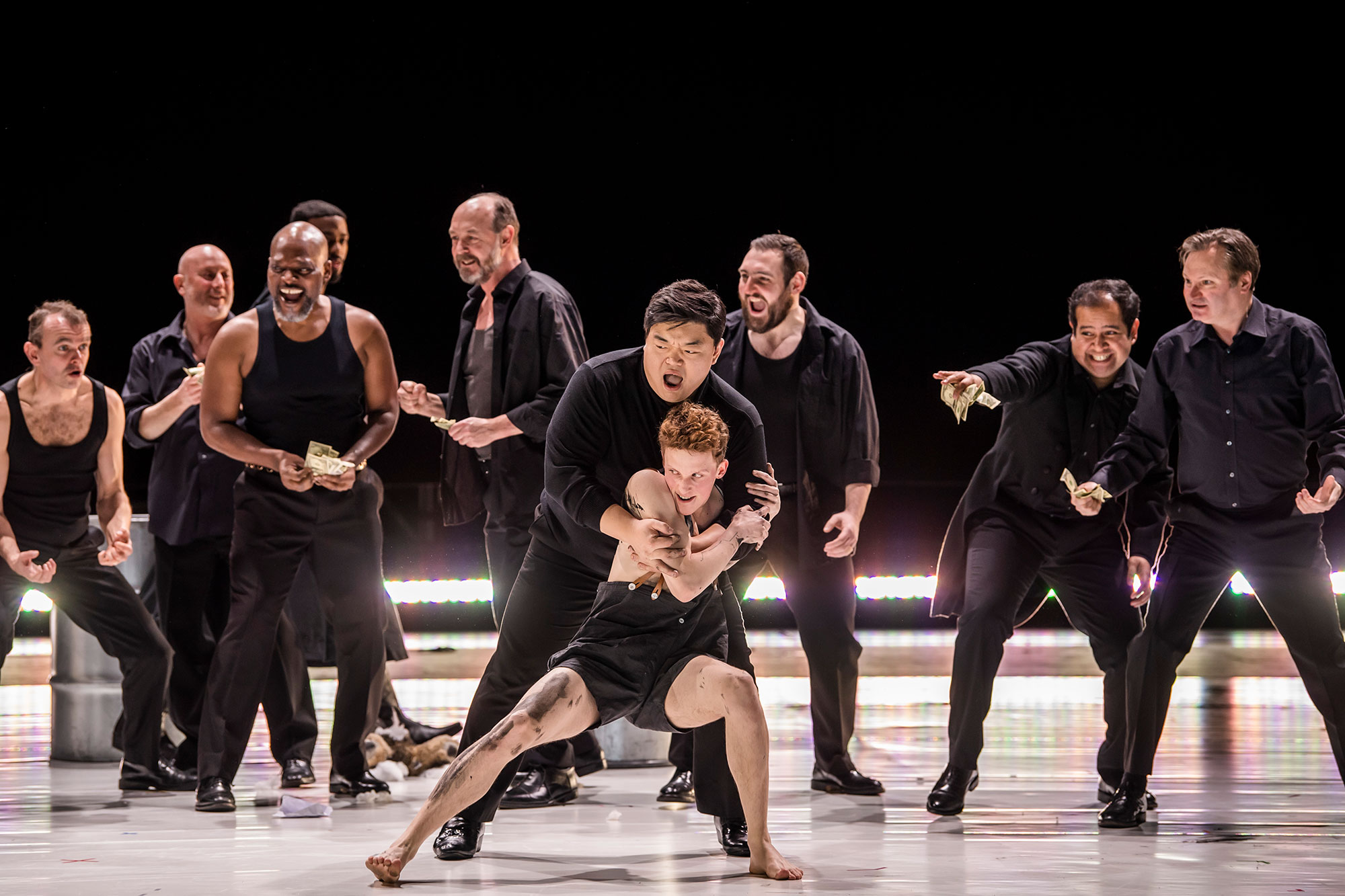
It sounds like the process requires a constant dialogue between all parties. In this project, what has the dialogue been like between you both and the director, Barbora Horáková?
AJ: It has been a constant dialogue, and working with Barbora has been great – she is always thinking about the music and how that affects the singers.
DJK: Her ideas about Luisa Miller are so human – she’s really focusing on the parts of each character that the audience can empathize with and understand. I think the way she’s constructed the piece means that every person who comes to see it will walk away totally getting the reason why the characters made the decisions they did. She’s really communicating the way that the human mind is multifaceted and can have this great darkness. It’s super impactful. The cast is really strong, and we’re all very invested in Barbora’s concept.
AJ: I won’t give anything away, but she uses different on-stage effects to really delve into the psychology of the characters. It’s very effective.
Luisa Miller was written quite some time ago – 1849 to be precise – so does it stand the test of time?
AJ: It’s one of the lesser played Verdi operas but certainly musically it’s on a similar level to La traviata or Rigoletto, especially in the second and third acts. It becomes more and more colourful and moves away from the early bel canto style. The story is timeless, it’s a great drama and we have great singers. I think people will really enjoy it!
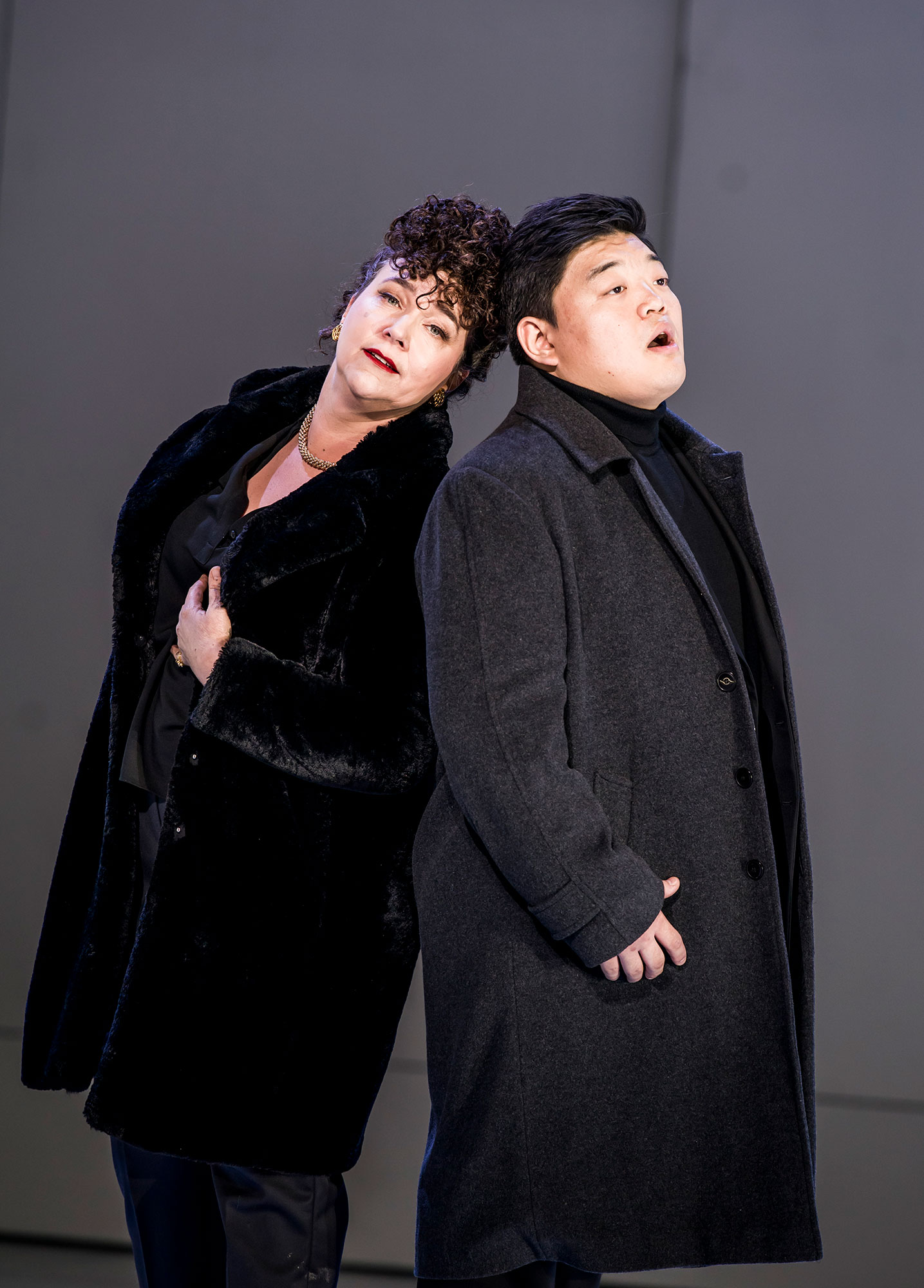
Does the storytelling in English (rather than the traditional Italian) make for a different experience?
AJ: It’s absolutely more accessible to an English-speaking audience. I must say, when I did La bohème [at ENO] last season, I totally understood why it makes sense to do it in English – I heard people laugh! When you fully comprehend what you’re hearing, rather than reading along with the surtitles, you pick up on those emotions so much quicker. Especially here, with a new modern translation; the tweaks that mean it is now in today’s language makes it even more accessible.
DJK: For the singers this also makes a difference: it feels like in English we can sing directly to an emotion. I think it works really well dramatically.
AJ: And the pacing is so good. The final act, it’s only three numbers: one’s a short chorus number that gives a great atmosphere, the second is a big father/daughter duet, and then you have this big ending that features all the effects of late Verdi with organ and harp. It’s got incredible colours and drama and poison and death; all the good stuff, condensed into 20 minutes!
ENO extends grateful thanks to Intermusica for facilitating this interview.
Luisa Miller is at the London Coliseum from 12 Feb – 6 Mar 2020. Find out more and book tickets.
Video


